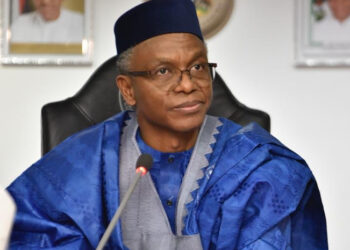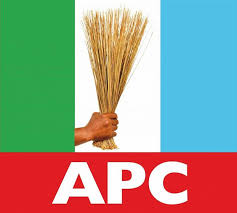The many controversies in the life and death of the first civilian governor of Kogi state, Abubakar Audu, form the thrust of this piece by ABDULRAHMAN A. ABDULRAUF
Prior to his emergence as the first chief executive of Kogi, the confluence state, upon its creation in 1991, the banker, Audu Abubakar was virtually an unknown figure, at least to the wider Nigerian political space. At the best, he was before that time a commissioner under the military administration of Group Captain David Jonah Jang in the old Benue state between 1988 and 89. That was after about 25 years stint in the banking industry.
Upon his election as governor in the less than one-year- old state, Audu’s popularity began to soar and the Prince of Niger was becoming visible in the nation’s political firmament. A man of taste and panache whose elaborate style of dressing always stood him out even in the crowd of political stars, the late politician also brought his quality life style to bear on governance.
It is on record that this trait was reflected in the many projects his administration executed in both his first and second coming as governor. Name them; the Kogi State University, Ayangba, the state polytechnic in Lokoja, the Radio and television station, networks of roads within the state, et al.
His elegant style of dressing, which of course put him in the class of the then governor of Osun State and now lawmaker, Senator Isiaka Adeleke, popularly called Serubawon, Kabir Gaya of Kano state, who incidentally is also a serving senator, and of course Audu’s very close political ally cum friend, and late governor of Kwara state, Mohammed Lawal, was the first that made him the cynosure of all eyes.
To say, he was irresistibly a powerful dresser, would be putting it mildly. The dressing, even up till his last appearance, greatly complemented his royal essence. His aura, candour and grandeur were qualities often seen in people of unusual opulence and to a little extent psychic sensibility . That really made him a must embrace for his admirers and fans. All these, combined with his massive frame, may have indeed accounted for his perception as being controversially arrogant.
The naming of some government institutions, particularly the state university which was named after his late father, again was another major event that put the late politician in yet another controversy. It became the talk of the town and even made a campaign issue by his opponents whenever he came aspiring to return to the Lugard House. Of course, the decision had since been reversed but not after it generated a lot of heat from within and outside the state.
What of his controversial estrangement with his wife, Aisha Eleojo Audu, Nee Emeje, who also squared it up with him in 2011 as the governorship candidate of the Justice Party? The brouhaha was certainly trailed by some judicial processes in far away United States of America. Besides, his reported marriage to a new wife also generated no less a controversy. Of course, the controversies could be said to be needless since the late banker was at the liberty to choose what he felt was good for him, marriage not an exception.
More than any other time, his candidacy as the standard bearer of the All Progressives Congress, was one major controversy which the late politician struggled to dust off, especially under an APC-led government at the federal level that prides itself as a change agent. Even among his fellow aspirants within the APC, allegations of corruption were made a serious issue.
And when he subsequently emerged, he had both the Economic and Financial Crimes Commission as well as the rival Peoples Democratic Party to contend with. It’s on record that the anti-corruption agency dug out a letter to the SGF, where it strongly argued that Audu must not be allowed to fly the party’s flag in the contest. So controversial was this that speculations were rife that the party’s bigwigs would not be part of his campaign.
But again, this came to nought, as the grand rally attracted the party’s notables, including Vice President Yemi Osinbajo , its national chairman, John Odigie Oyegun and the Imo state governor, Rochas Okorocha and some governors. Though the absence of Muhammadu Buhari almost cast some credibility shadows on the gathering, the tumultuous crowd that witnessed the rally made that insignificant. And controversially, he strode like a colossus through the electoral process, until the bang of inconclusiveness of the exercise, swept through Kogi like a tornado.
Further to this, events preceding his death were yet another source of controversy. The multiple accounts of how and when he died, to some extent remain cloudy. To some, the shock arising from the decision by the Independent National Electoral Commission, led to higher blood pressure which ultimately resulted in stroke. Yet another account insisted the late politician complained the previous night of stomach cramps. On the time of his demise, while some said he passed on late Saturday evening, another account claimed it was on Sunday when news filtered in that the exercise was inconclusive.
So controversial was the news of his death that telephone calls were crisscrossing the land , with everyone eager to hear and know whether there was any iota of truth in the tragic news. And when the worst was confirmed, some jokers would still want to make some drama out of the death, thus leading to the next stage of controversy.
And possibly out of sheer love, sympathy , emotion, sentiment or even mischief, the rumour mill was agog that he never died after all. Nay, that the dead had risen after a ‘prophetess’ assured she was going to bring him back to life. Like his death, this joke or comic relief of sort travelled so wide that the mourning mood quickly changed to that of jubilation.
With his death, one would have thought that his many controversies had epically come to an end, but rather they only opened a new controversial chapter in the nation’s political history. The bizarreness of Audu’s demise, especially the timing has created a serious constitutional crisis that the court will have to resolve very soon. Scores of legal practitioners and public affairs analysts are surely having a field day jogging with the nation’s relevant laws.
A close examination of both the Constitution as well as the Electoral Act clearly leaves one in a fix as to how to fix this grotesque of a political occurrence that the nation currently faces in Kogi.
Perhaps, the closest law that attempts to tackle such scenario is Section 181 which says: (1) If a person duly elected as Governor dies before taking and subscribing the Oath of Allegiance and oath of office, or is unable for any reason whatsoever to be sworn in, the person elected with him as Deputy governor shall be sworn in as Governor and he shall nominate a new Deputy-Governor who shall be appointed by the Governor with the approval of a simple majority of the House of Assembly of the State; and (2) Where the persons duly elected as Governor and Deputy Governor of a State die or are for any reason unable to assume office before the inauguration of the House of Assembly, the Independent National Electoral Commission shall immediately conduct an election for a Governor and Deputy Governor of the State.
Similarly, Section 36 (1) of the Electoral Act, states: If after the time for the delivery of nomination paper and before the commencement of the poll, a nominated candidate dies, the Chief National Electoral Commissioner or the Resident Electoral Commissioner shall, being satisfied of the fact of the death, countermand the poll in which the deceased candidate was to participate and the Commission shall appoint some other convenient date for the election within 14 days.
These seeming controversies, as some believe, are usually associated with men and women of fame and power, a class Audu eminently belonged. While some of these controversies are politically contrived, others could be said to be real. Whichever way one looks at them, one fact that remains incontrovertible is that amidst all of this, the Prince of Niger bestrode the nation’s political scene like a colossus and used same to serve the mass of his people. This , certainly is enough a legacy for his family and indeed the entire people of Kogi and Nigeria. No wonder President Muhammadu Buhari, in his tribute to the late politician described him as a political talent.



